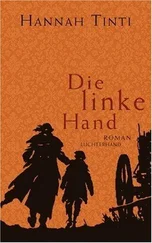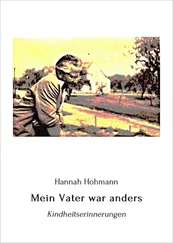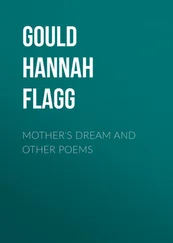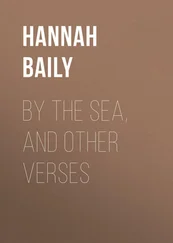He thought there was something French about me the first time he saw me. His smile is palpable in the darkness, now that I’ve relaxed toward him. But I’m too preoccupied with the fact that he’s speaking French and that I understand it to worry about his lewd hopes.
One day during my senior year of high school, Mr. Samuels came up to me in the hall to tell me that my French essay on Louise Labé was so brilliant he wished he had written it himself. He made copies of my essay and distributed them to his classes. This was the last thing I’d done that I was really proud of. In the fifteen years since, reading Proust or Flaubert or Stendhal has been the only thing I could rely on to make me feel okay with myself. Yet I have avoided speaking French since Paris, where my one clear sense of worthiness was scrutinized and scorned by unsmiling waiters and clerks who insisted on addressing me in clipped, rote English as soon as they heard my accent. Strange, but I long to speak French even more now that I’ve given up on Fifi . I want to feel that I still have the language as a friend, a source of enjoyment, that it hasn’t all been a waste.
“Et vous?” I ask, happy now and a little drunk and utterly free of concern about what this stranger thinks of me. “Vous habitez en Belgique?”
No, he lives in Paris. He motions back to the café. “Juste un verre?”
He pulls out a chair for me at the first table we come to. I suggest we sit closer to the café, where two white girls sway to no music. One wears a spandex skirt that ends a few inches below her ass. “Comme vous voulez,” Claude says, and follows me to a table caught in a cone of mustardy light cast by a bulb hanging from the café ceiling.
—
Claude was born in Colombo, but his father is French. He orders us two glasses of arrack. He went to university in Paris and decided to stay. He comes back to Sri Lanka a few times a year for business. He buys and sells hotels, here and in southern France. He asks me if I like Sri Lanka, saying “my country” in English with an overdone Sinhalese accent. Yes, I adore his country.
I try to tell him about my first trip here, how I met Suriya and then came back to stay with her family. The neglected French sounds cling to my tongue, piling up inside my mouth. I push them out into the warm, dark air, where they hover close to my face, needy and insecure. I hear everything I’m saying too clearly — the way my mouth refuses to form the right shapes, the pauses between phrases, the emptiness of their meaning. In English, I can hide behind hurried, excessive phraseology. But there is sufficient difficulty in speaking and understanding French that I’m forced to notice how traumatized I am by the simple act of talking. Inside the space between how I experience life alone and how I experience it among others are the vital mysteries of myself, impervious to cynicism or jokes or plans, unable to handle the external world even in its gentlest form. I’m sitting squarely in that space now, giddy with vulnerability.
Claude finishes half his drink in two swallows. His upper body is backlit by the café lights, a snowman’s silhouette: one smaller lump atop a larger one. He thinks Sri Lanka is a good place for a vacation. But he couldn’t stand living here. He got out as soon as he could. Because of the war? I wonder.
“Non. Pas du tout.” He turns toward the café light and begins to roll a cigarette on his knee. Where he lived, the war didn’t matter at all. He left because the people here are stupid. Like his parents. Their servants once found some pieces of human flesh in their backyard, probably dropped there by some birds.
“Quelqu’un qui est mort dans la guerre?” I ask with tasteless eagerness, thrilled that he’s speaking about the war, proud that I understand him.
Claude lights his cigarette and turns back to me. The person probably died in the war. How the hell would he know? I stiffen. He takes hurried drags on his thick cigarette. What disgusted him about the whole thing was that his parents seemed embarrassed , as if it were impolite to have human flesh in the backyard. His mother asked the servants to get rid of the corpse in this terrible, soft, ashamed voice. Claude shakes the ice in his drink. She had no clue what the war was even about. People here don’t give a damn about politics. They just want to kill or be killed. Not that Claude blames them. Anything is better than politics. His laugh is a baritone rush of hot air against my face. I turn toward the café, now empty. The waiters are probably in the back, smoking hash. I cross my ankles under my chair and turn my body toward the darkness, away from Claude’s loud hiss. I ask him why he comes back to Sri Lanka for vacation if he hates the country so much.
“Comment?” He pronounces the word with the harsh impatience I got used to hearing in Paris, when people either could not understand my accent or simply wanted to shame me for it. I try to repeat my question slowly and clearly, but self-consciousness makes me stumble over simple words, the guttural beginning of retournez sticking in my throat for so long that I blush and cringe.
“Ah! For vacation, Sri Lanka is wonderful. Luxury hotels for practically pennies.” He’s speaking in English now. My French is unacceptable. I am unacceptable. “And I do miss a decent curry when I’m in France. The French are such fanatics about their food, but a well-done chicken curry is much more interesting than foie gras. Tomorrow I’ll bring you to a local restaurant. You won’t have food like this anywhere else on the island, believe me. You have—” He reaches over and takes a piece of lint from my hair. My chin curls to my chest. “I like you,” he says. “I never like Sri Lankan girls. My mother is always arranging meetings for me with local girls. They’re pretty. But they don’t excite me at all. Sri Lankan women hate sex.” He turns his chair toward me and rolls up the sleeves of his T-shirt, exposing flabby upper arms as wide as my thigh. “I bet you don’t hate sex.”
Claude believes he can have me, even though he is short and fat and the only thing he knows about me is that I am an American girl traveling in Sri Lanka. He is rich and used to getting whatever he wants. The thought judders me out of the stupor of failure into which I have plunged. Why am I sitting alone late at night, exhausted, with a stranger whose bearing disgusts me, instead of sleeping in the cocoon of my mosquito net so that I can wake up early, meditate to the pirith coming from the temple down the street, jump in the ocean, drink tea, eat fresh papaya and mango?
“I have a boyfriend,” I tell Claude.
“Then what are you doing here with me?”
“I just wanted to speak with you.” My voice drags like the tired feet of a small girl. If only I had become obsessed with any other language. Italian, Spanish, Hindi, Arabic — a happy language that encouraged foreigners in any attempt to speak it. I felt uncomfortable around every single person I met in Paris. Why did I take this as my fault, a barrier formed of my own incapacity, an incapacity I needed to remedy if I ever wanted to belong to anything worthwhile? Whatever made me so convinced that the only hope for my life was to prove my connection to a country in which I hated being myself? French was like an abusive lover — not so abusive that I was fearing for my physical safety and contemplating pressing charges, just abusive enough to keep me interested, to make me feel special when he treated me well, to make me hope.
“I have to go to bed,” I tell Claude. “I’m exhausted.”
“You’re exhausted? Or you’re afraid I’m going to rape you?”
I jerk back, raising the front legs of my chair off the sand.
“I’m kidding,” Claude says. “Une blague française.”
Читать дальше












